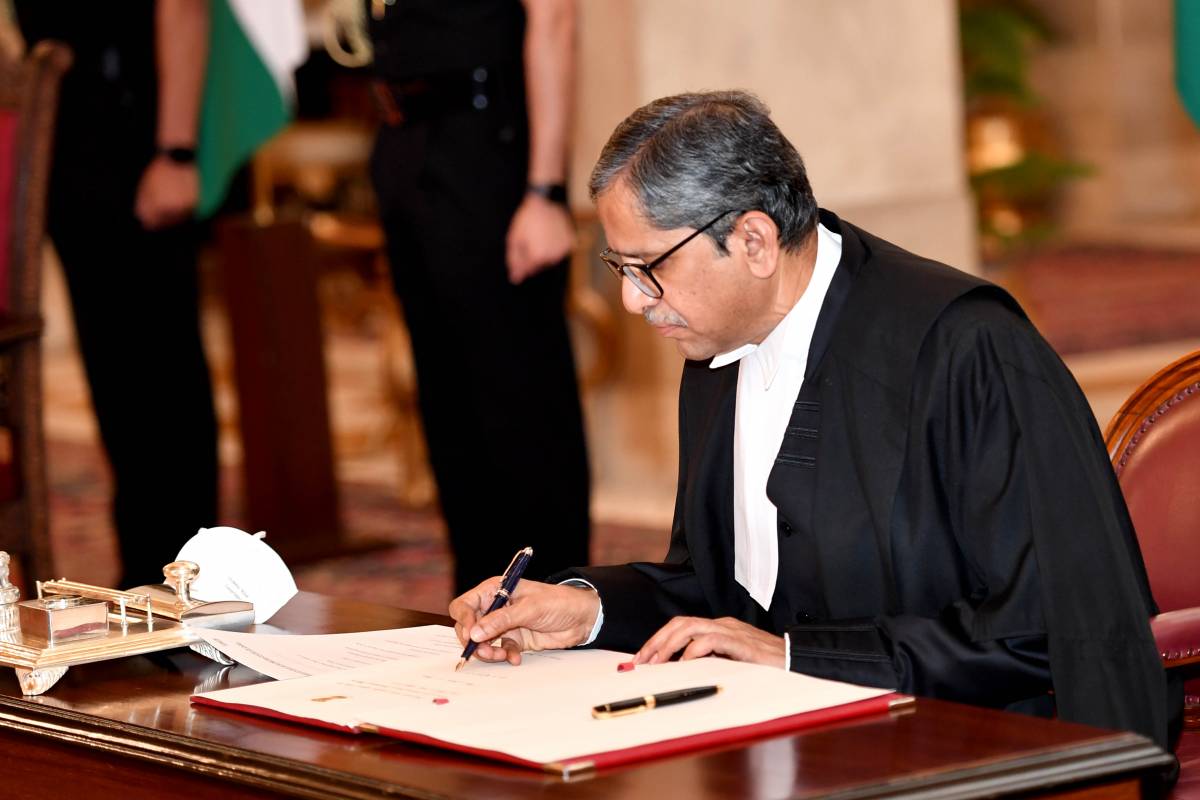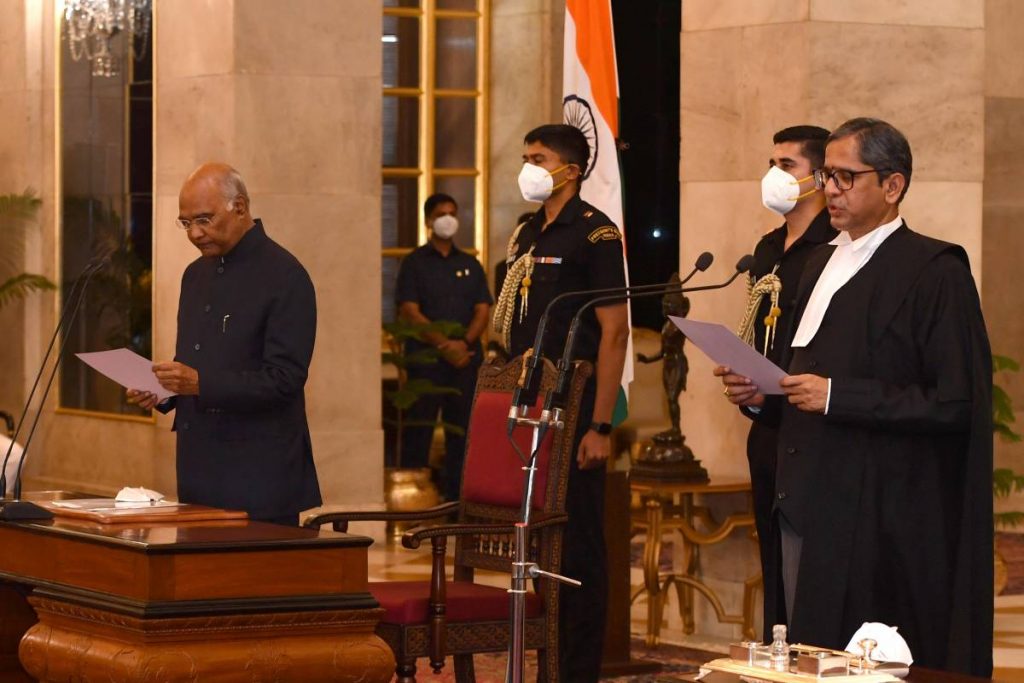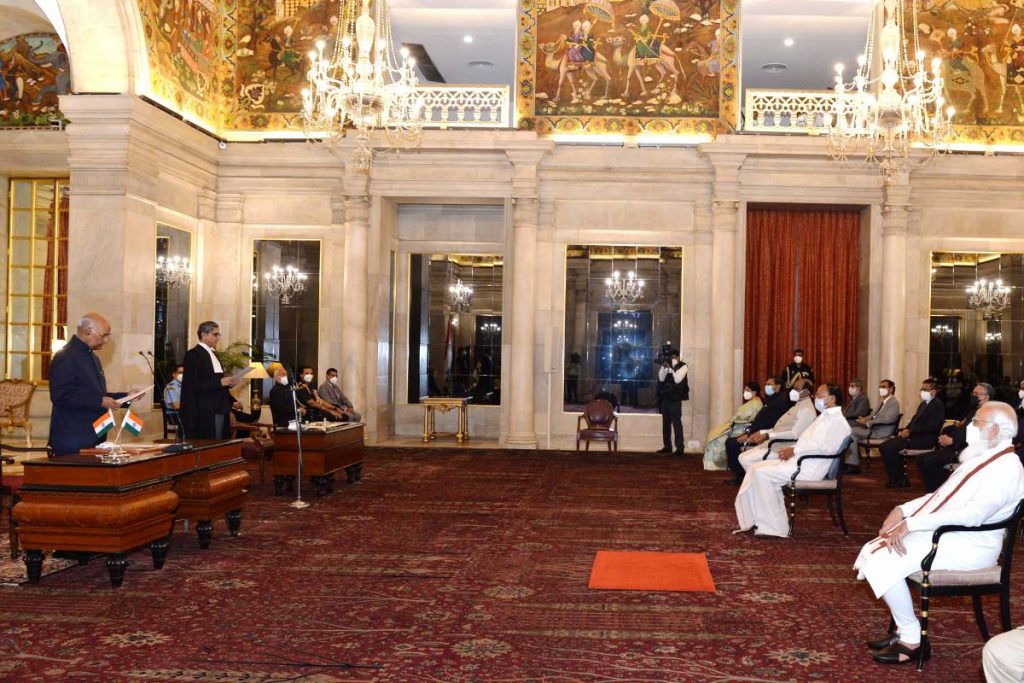Further, the CJI that those who are serving in conflict zones are willing to risk their lives…reports Asian Lite News.
Speaking truth to power and holding up a mirror to society is an immense responsibility that is extremely difficult to fulfill and there is enormous pressure and stress upon journalists, Chief Justice of India N.V. Ramana said on Wednesday.
“In the contemporary world, performing duty as a journalist is akin to dancing on razor’s edge,” he said.
“As someone who started his professional career as a journalist, I can understand your difficulties and struggles,” the CJI said in a keynote address at the Red Ink Awards 2021, awarded for excellence in journalism.”
“You are on your feet for long hours and constantly on call and working. Holidays are few and far between and finding time to spend with family is difficult. The stress on your family is also immense. The wages too are not very encouraging. Women, particularly beyond metros, still find it difficult to gain a foothold in the profession,” he said.
Further, the CJI that those who are serving in conflict zones are willing to risk their lives.
“Those on regular beats are also no longer safe. Some of those in powerful positions, both political leaders and bureaucracy, the mafia of all shades, and those on the wrong side of the law – none of them are comfortable with the professional journalists. As a result, you keep getting unpleasant and disturbing messages. I know it is not easy for you and your families to deal with such threats. Another worrisome trend is the concerted effort to bracket journalists into a particular category. I can imagine how painful it is,” he said.
Yet, he stressed, “it is an extremely satisfying profession to pursue. It is often said that the legal profession is a noble profession. I can state that the journalist’s job is noble and is an integral pillar of democracy. Like the legal professional, a journalist also needs to have a strong moral fiber and moral compass. Your conscience is your guide in this profession”.
He also noted that the freedom of the press is a valuable and sacred right enshrined in the Indian Constitution.
“Without such freedom, there cannot be discussion and debate that is essential for the growth of democracy. There can be no flow of information that the public requires, and that democracy demands,” he added.
ALSO READ-Karnataka to witness high-voltage political theatre in 2022


